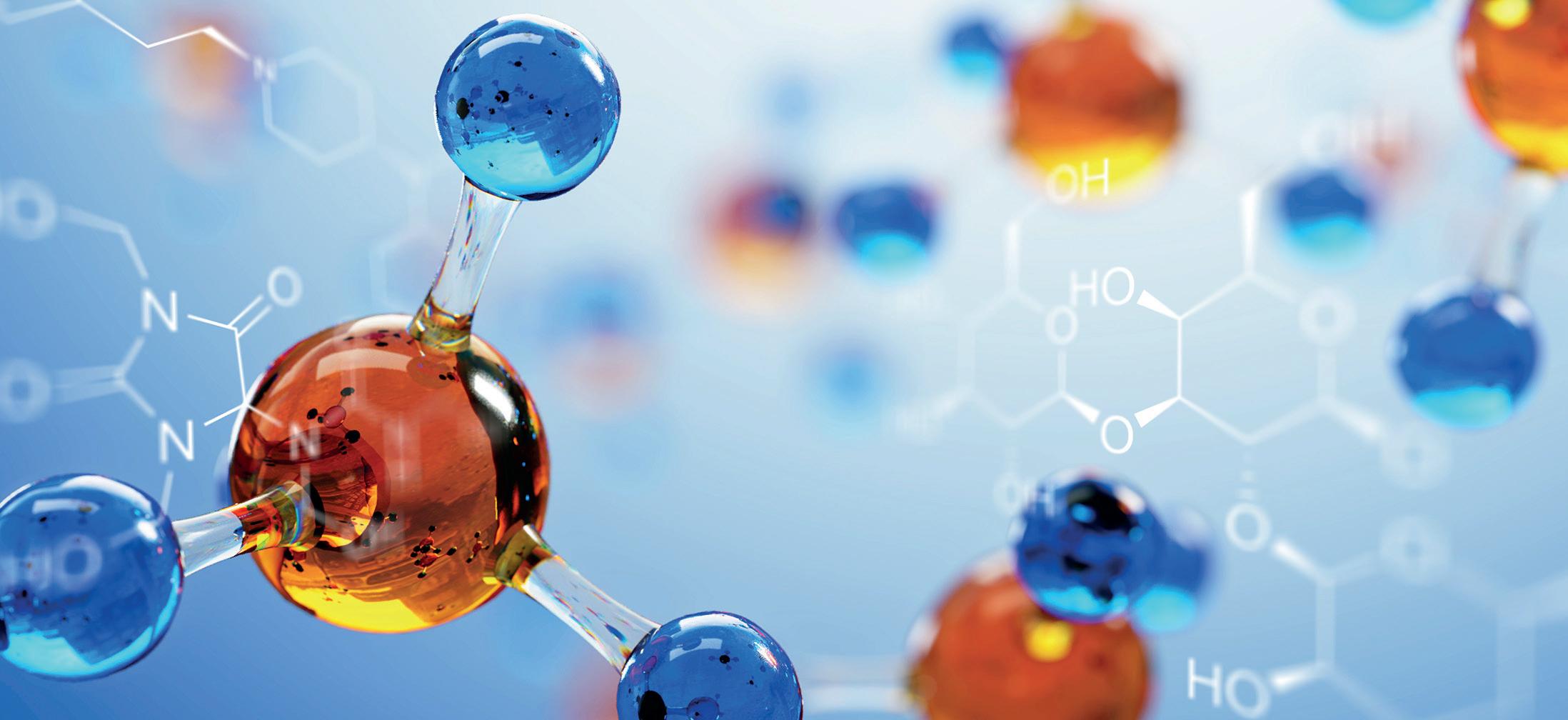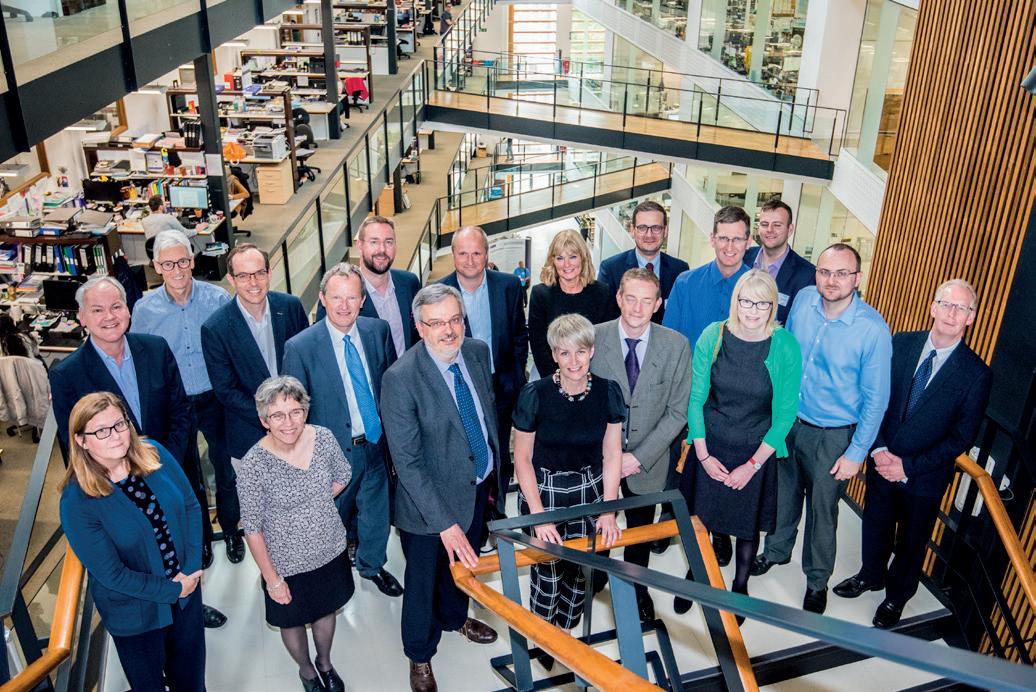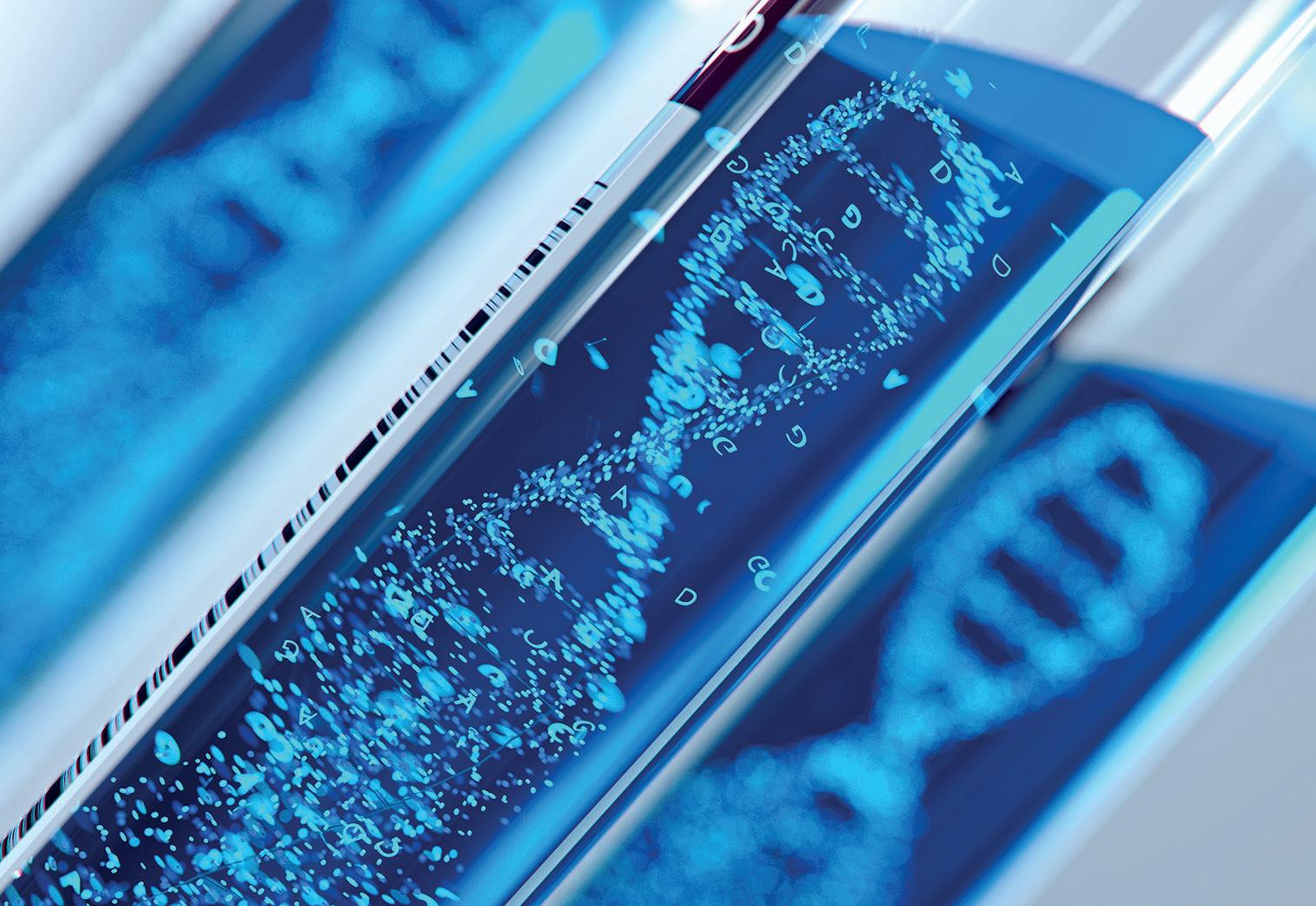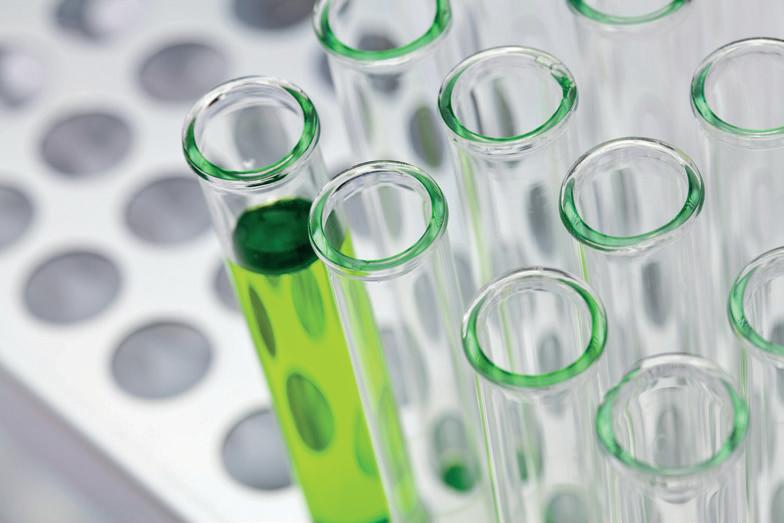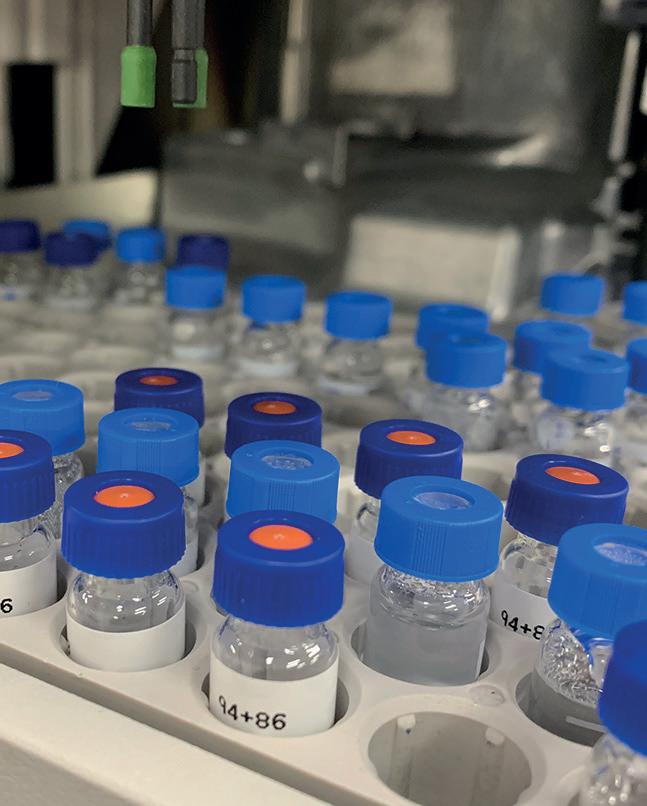
1 minute read
IMPACT
CASE STUDY: SHELL NOVEL (DE)CARBOXYLATION CATALYSTS TO DRIVE THE CO2 BIOECONOMY
Shell has worked for many years with the Manchester Institute of Biotechnology (MIB) in the area of biocatalytic transformations, especially in the area of fuels and chemicals manufacture. This has involved collaborations with MIB Centres of Excellence including SYNBIOCHEM, the Centre of Excellence in Biocatalysis, Biotransformations and Biocatalytic Manufacture (CoEBio3) and the MIB Molecular Enzymology Group. Most programmes have focussed on biocatalyst discovery and engineering, and a prominent example has been the discovery of a new class of enzyme based on a novel cofactor (prenylated flavins) involved in the CO 2 bioeconomy.
Advertisement
Early work established the structures and mechanisms of enzymes in this class. Subsequently, these enzymes have been exploited in a number of biocatalytic cascades to provide novel routes to fine and speciality chemicals and monomers for materials biosynthesis. Shell is now working with the Future BRH to implement high throughput biocatalyst engineering and screening (Grand Challenge 1, Platform 1 and Platform 2) and the bioengineering of microbial industrial strains (Grand Challenge 2, Platform 4 and Platform 5) to realise the biomanufacturing potential of these systems at industrial scale. Taken together this work will demonstrate how collaborative industrial projects can run from fundamental biochemical discovery through to viable industrial processes all within the context of the MIB.
CASE STUDY: C3 BIOTECH FUELS FROM BIOLOGY

C3 Bio-Technologies Ltd (C3 BIOTECH) is using emergent technologies such as synthetic biology to design new routes to the bio-production of fuels. The company works across biomanufacturing and distribution supply chains to deliver next-generation fuels that are sustainable, renewable and cost effective. C3 BIOTECH has developed proprietary technologies for the production of bio-ethanol (from carbon dioxide), liquefied petroleum gas (from waste materials) and precursors of aviation fuel components. C3 BIOTECH is working with the Future BRH to develop economic scaled production platforms for these products.
Future BRH is supporting the commercialisation of fuels in the C3 BIOTECH portfolio in the area of techno-economics analysis and assessments of environmental impacts. These analyses are then feeding into industry sponsored programmes in which laboratory processes are being scaled at pilot and demonstrator levels. Future BRH is also advising on microbial strain bioengineering to support these programmes.


